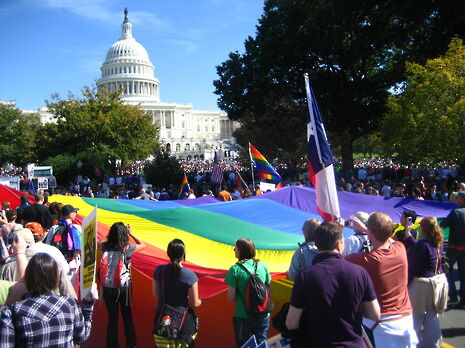I’m a special snowflake. So what?
The openness to different kinds of identity should not be derided, but celebrated, argues Yukiko Lui

Since when did authenticity become a bad thing? One of the charges most frequently levelled against today’s young people is that we are excessively self-centred to the point of bordering on narcissistic. The selfie generation is apparently comprised of ‘special snowflakes’ who are somehow too sensitive on the one hand, and yet, too aggressive in their pursuits of authenticity and truth in their identities. It’s alleged that the students on university campuses asking for trigger and content warnings to be placed on course materials and the young non-binary people proudly thwarting the gender binary are agents of some organised worldwide conspiracy whose sole purpose is to create mild inconveniences for other people.
The lamentation that young people are somehow degenerate is nothing new. It is repeated by each generation as it grows older and a new cohort of people take up the mantle of youth. But proponents of the argument have arguably gained some footing in the internet age. Now, instead of being kept under wraps, the alleged narcissism of the younger generation is just a click or two away. At the heart of the scepticism about ‘special snowflakes’ is a stubborn refusal to acknowledge the plurality of human experience, in itself predicated on a very narrow conception of the boundaries of human identity.
“These identities have always existed and have always been legitimate, but we have not always lived in a society which validates them.”
The fear about the adoption of different, ‘fake’ identities to which young people subscribe is unfounded. The plurality of identities and labels we are seeing now is not the product of some generation-specific glitch. These identities have always existed and have always been legitimate, but we have not always lived in a society which validates them. But we are now living in an era that is more inclusive than ever of different identities. Information about different identities, particularly gender and sexual identities, is more freely available. It is a luxury to have a choice as to the performance of your identity – for a long time marginalised people have had identities foisted on them from above. Polari – a language developed in gay subculture not only as a means of communication but also as an identifier of their sexual orientation – is one example of the many ways the performative, public parts of some identities have had to be kept under wraps. And it continues to this day with, for example, Facebook’s attempts to have users register under their ‘real’ names which have caught in their net trans people with names the website deems ‘fake’.
We are seeing the start of this with the tools we have at our disposal and the slow domino fall of discriminatory views. We are becoming better at articulating authenticity. In our brave new world, an authentic identity is no longer a luxury to be enjoyed only by overrepresented groups – the pale, stale or male. Those begrudging the younger generation of the pleasures of a life lived authentically shouldn’t be so quick to judge – the impulse to live your life authentically is one that is common among all people, regardless of age. We need to stop focusing on the solidarity of sameness and focus instead on solidarity through empathy and allyship. We need to place our faith back in the true lived experiences of our peers and trust in their candour. Only when we discard the scepticism and suspicion with which we regard people different from us will we be able to achieve real allyship and inclusion. This necessarily involves accepting inclusion, compassion and the recognition of other people as the real, authentic human beings they are. We are only just developing the vocabulary with which to accurately and comprehensively describe the things we might always have known we are. This means young people are the generation most adept at accepting and celebrating difference because more of us have experienced at first hand what it feels to be othered. Living in a generation of ‘special snowflakes’ doesn’t have to be a pejorative thing. It simply means we’ve opened ourselves up to the large array of different identities and found that diversity does not present a threat. In some circles diversity is often conceptualised as threatening a certain way of life or worldview, but the realisation that identity is a multifarious thing can change this fear into acceptance. If we widen our definition of authenticity to include the truths of those who are different from us, the fear about ‘special snowflakes’ will melt away
 Comment / Anti-trans societies won’t make women safer14 November 2025
Comment / Anti-trans societies won’t make women safer14 November 2025 News / Controversial women’s society receives over £13,000 in donations14 November 2025
News / Controversial women’s society receives over £13,000 in donations14 November 2025 News / John’s rakes in £110k in movie moolah14 November 2025
News / John’s rakes in £110k in movie moolah14 November 2025 Fashion / You smell really boring 13 November 2025
Fashion / You smell really boring 13 November 2025 Music / Three underated evensongs you need to visit14 November 2025
Music / Three underated evensongs you need to visit14 November 2025









